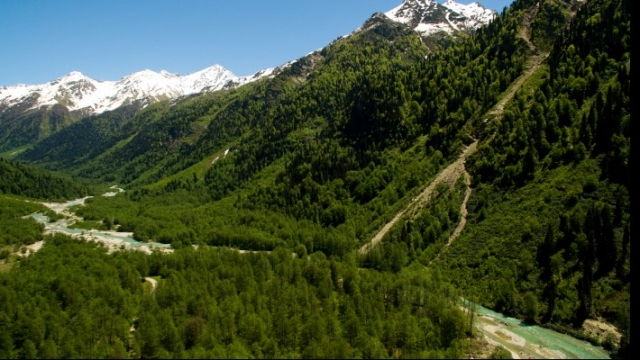Georgia’s Energy Independence: an Outlook
INTERVIEW
Energy independence and energy efficiency represent one of the crucial challenges for Georgia. Gia Arabidze, energy department dean of Georgia Technical University, talks about energy independence to “Business Morning”. –
Gia, it has become common knowledge that energy independence is of the utmost importance. How can we react to this challenge so that the population is not turned against investment projects?
- Our country aspires to become energy independent which is very important. We face, however, certain issues with natural gas and oil. We are in a better position in terms of energy self-sufficiency, and gaining energy independence from other countries looks feasible. Winter months though are challenging for us. Unless we change certain things, all this can turn into the same outcome we obtained after we stopped construction of Khudoni HPP back in 90s. If Enguri HPP supplied Georgia with an annual 1.5 billion kWh of energy at two tetri per 1 kWh, we would have a totally different situation and tariffs now, and we would take on construction of new hydro power plants more confidently. Unfortunately, whatever happened, happened. Another issue is that we fall behind on hydropower plants – this particularly concerns Khudoni HPP. As an energy engineer, I consider Khudoni HPP necessary for Georgia. The more we delay, the worse the problems we will consequently face. I think we have two key lines in the hydropower industry. Certainly, Nenskra HPP construction is continuing, but Khudoni HPP has to finish. Besides, we have to think of construction of a pumped storage unit at the Inguri. This unit will politically matter in terms of Abkhazia and benefit the Georgian, Abkhaz, and Inguri population as well. - As a consequence, we won’t have to consume the energy generated by thermal stations. For a certain period of time, we release water from the Inguri. Therefore, a pumped storage unit will pump the generated water back up to the dam, and the dam processing modes will be entirely changed. The country will benefit from this, as pumping water up to the dam doesn’t need as much energy as we potentially may get from its generation. The Inguri dam must be processed to select modes. -The Infrastructure Minister states that the government attaches special importance to Nenskra project.
What will be the contribution of the project when finished?
-The specific share of Nenskra out of our total output is about 5%-7%. The importance of the project is that the energy generated during May, June and July is different from the energy generated during December. Nenskra is equipped with storage, and we use the storage whenever we need it, that is, those 5-7% cost a lot higher in December compared to summer months.
The unique character of the project is that we can regulate the storage. For example, when we are short of energy, we can replenish it from the storage. We, the energy engineers, think that the construction of Nenskra is somewhat expensive, as the hard-to-access location makes the project hard to execute. In total, the memorandums and agreements concluded in Georgia are worth about 5 000 MW. We are far from thinking that we will construct hydropower plants with 5 000 MW capacity. However, even half or two thirds would greatly benefit us. Most importantly, the project envisages the installation of the most up-to-date facilities. This is planned to be a technically top-level station. This is important in terms of safety and reliability. All this adds up to the project costs.
How much of our hydropower resources have we utilized?
- If we utilized at least two thirds of our existing potential, we would be happy as Georgia has then determined its policy. We are familiar with our hydro and heating power. Consequently, we are more focused on renewable energy sources. Georgia plans to start step-by-step hard work on renewable energy, that is, solar and wind renewable power. Naturally, hydropower is renewable as well, but dam-based plants are challenging environmentally, especially on account of flooding of agricultural land. Small-scale generation is quite beneficial in general, but in Georgia its potential equals about 5 billion kWh.
Can we benefit from small-scale hydropower plants just like we may from large-scale ones?
- No one has ever calculated which one is more detrimental to the environment: one 100 MW power plant or one hundred 1 MW power plants. Therefore, we can’t say specifically that 3-5 MW plants will be more or less detrimental than 30 MW plants. This is debatable. Globally speaking, if we construct all those small-scale feasible power plants, seasonally we will generate 5 billion kWh during April, May and June. That is, when we have energy surplus. We adjust this issue through use of the storage. Therefore, we say that Khudoni, Nenskra and Enguri are indeed necessary. For electrical and energy independence, we need an adjustable station.
Does it all hold export potential?
- We were in a very favorable position about 2-3 years ago when the Turkish economy would ask us to supply them with electric power at the price of 7 cents per one kWh. Today, they don’t pay even 3.5 cents. So, regional issues, GEL and USD ratio have had all a substantial impact on energy and electricity sectors. Despite this, the potential is still there as we have very good electricity transmission lines.
Source: www.bm.ge












